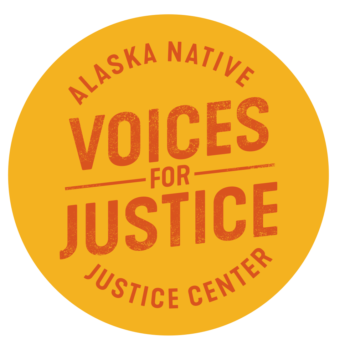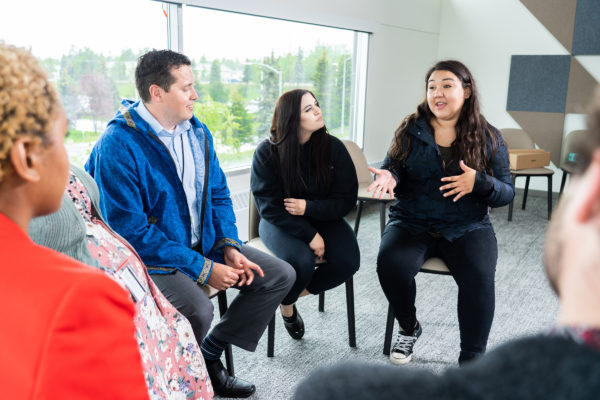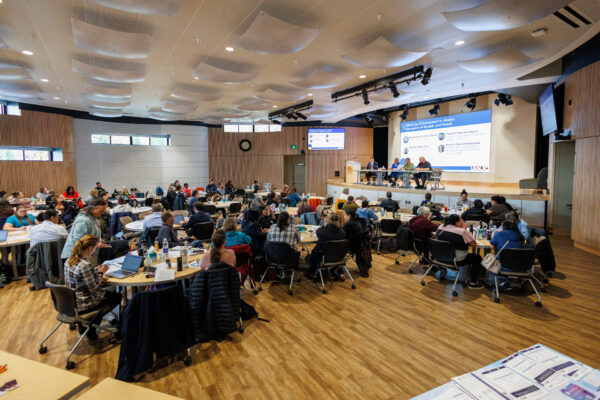2020: Growing. Stronger.
 Four years after becoming a subsidiary of CITC, the Alaska Native Justice Center (ANJC) has never been stronger, thanks to expanded services, new statewide collaborations, increased staff — and the lessons learned from not one but two major challenges over the last two years.
Four years after becoming a subsidiary of CITC, the Alaska Native Justice Center (ANJC) has never been stronger, thanks to expanded services, new statewide collaborations, increased staff — and the lessons learned from not one but two major challenges over the last two years.
“The earthquake taught us a lot about delivering services in less than ideal circumstances,” said Tammy Ashley, ANJC Director of Operations. “When COVID-19 hit, we knew what it would take to continue serving our people, and within 48 hours of switching to remote work, we were up and running at 100 percent.”
Make that 110 percent: ANJC staff not only kept programs up and running over the past, tumultuous year, but expanded existing programs and started new ones.
Legal Support

“When I first started talking about this job, it was a narrow scope of work,” commented Alex Cleghorn, ANJC Legal and Policy Director. “We were just launching the Tribal ICWA Representation Program. Today, ANJC legal services have grown into much, much more.”
In 2018, ANJC had one attorney on staff; the following year, the organization started offering Alaska Tribes guidance and legal representation for ICWA (Indian Child Welfare Act) cases. Two years later, the legal team now numbers nine, and ICWA representation is just one of the services they offer.
This year, ANJC brought on a tribal court facilitator who can provide training and technical assistance to Alaska Tribes. The organization is now equipped to provide training, technical assistance, and best practices to the Tribal court system, statewide.
As the COVID-19 pandemic necessitated remote service delivery, the ANJC legal team’s experience offering virtual support, pre-pandemic, paid off. Prior to COVID, ANJC had already been providing over-the-phone representation for Tribes in Anchorage courts.
“We’ve continued to have lawyers appearing in court and for trial remotely,” said Alex. “COVID has also driven the court system to allow people to file remotely, and we’ve been able to assist our clients with that, as well.”
Mentoring Youth
 Even as ANJC staff transitioned to working from home and collaborating virtually, staff managed to establish a new partnership with the Department of Juvenile Justice and McLaughlin Youth Center (MYC), fulfilling a goal Tammy had set for the organization years before. ANJC youth advocates and case managers hold monthly virtual groups and offer case management at MYC, connecting virtually during the pandemic, though staff will be on-site once social distancing protocols are lifted.
Even as ANJC staff transitioned to working from home and collaborating virtually, staff managed to establish a new partnership with the Department of Juvenile Justice and McLaughlin Youth Center (MYC), fulfilling a goal Tammy had set for the organization years before. ANJC youth advocates and case managers hold monthly virtual groups and offer case management at MYC, connecting virtually during the pandemic, though staff will be on-site once social distancing protocols are lifted.
“The MYC program is all about prevention,” Tammy said. “If we can help these youth make positive choices when they’re coming out of MYC, hopefully we won’t see them down the road as adults coming out of the prison system.”
ANJC also rolled out a new youth partnership with Big Brothers, Big Sisters Alaska (BBBS). Through the Anikatiga program, ANJC hopes to improve academic outcomes and increase resiliency among Alaska Native students by connecting BBBS “littles” and their families to case management, social service referrals, cultural connection, mentoring, and more.
Meanwhile, the annual Color of Justice program, which engages youth interested in legal and judicial careers, was slated for late this summer. ANJC, this year’s host, had roughly two weeks to come up with and execute a plan to hold Color of Justice virtually — which they did, with 17 youth participating and more than a dozen adult volunteers.
Strong Partners
From youth services to adult reentry support to advocacy on behalf of victims of domestic and other violence, ANJC’s programs all saw an increase in supportive services — that is, additional support provided by ANJC that allows individuals to focus on their recovery or reentry.
 “None of this was easy,” said Tammy of ensuring that ANJC not only survived the onset of COVID-19, but thrived throughout the pandemic. “None of it was totally efficient. But our participants were never without services.”
“None of this was easy,” said Tammy of ensuring that ANJC not only survived the onset of COVID-19, but thrived throughout the pandemic. “None of it was totally efficient. But our participants were never without services.”
This is due in great part to a dedicated staff. ANJC set goals this year to retain staff and to increase Native hire, both of which it did, with a 92 percent retention rate and a 77 percent Native hire rate.
As ANJC grows its staff and its participant base, the organization is also focused on growing statewide partnerships, said Tammy.
“We are going into the community and building our credibility as an organization,” she said. ANJC has partnered with 18 other organizations on statewide grants; the organization has joined forces with a total of 70 community and state partners to bring justice, advocacy, and services to communities across Alaska.
“As an organization, we’re being recognized in ways we haven’t before,” Tammy elaborated. “We’re being asked to present, to come to meetings, to have a seat at the table. We’re growing with all the work we’ve done, and that really comes down to our employees. We’re only as strong as our staff, and we put in a lot of work to make sure we’re doing the things we say we’ll do.”
Looking Ahead to 2021
As ANJC closes out 2020, the organization has set new goals for the coming year:
- After building a plan and holding a strategic session for rolling out a new program for Elders who are victims of violent crime, ANJC is poised to work with partners to launch this service in 2021.
- Two grants involving five new partners are allowing ANJC to expand human trafficking prevention efforts statewide.
- The legal team will continue to expand training for Alaska Tribes’ ICWA workers and is drafting an ICWA worker’s handbook.
- Legal will also begin providing support with the variance process for people with certain kinds of criminal convictions.




